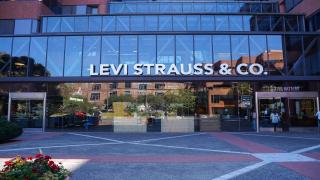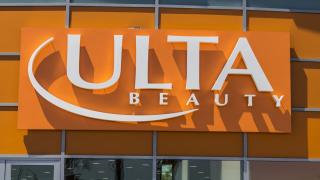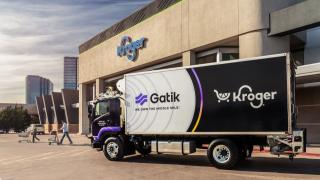News Briefs
Kroger’s Retail Media Arm Achieves Fraud Safety Certification
Kroger Co.’s retail media arm, Kroger Precision Marketing (KPM) — powered by 84.51° — has received a platinum certification from the Trustworthy Accountability Group (TAG).
This marks the fourth consecutive year KPM has registered with the certification, which recognizes brands and tech providers who are fighting criminal activity and protecting brand safety across digital advertising.
Kroger was one of just 23 companies to recently receive "TAG Platinum" status by successfully obtaining all three of TAG's certification seals:
- Brand Safety Certified: Minimizes the risk of advertising being placed on inappropriate or unsafe digital media, promoting industry-regulated brand safety standards and transparency.
- Certified Against Fraud: Combats fraud across the supply chain.
- Certified Against Malware: Provides companies with a strategy for tackling malware in advertising.
According to Cara Pratt, SVP of KPM, digital marketers need to earn consumers’ trust every day. "The next generation of ad-supported media must be consumer-centric, and the standards we're upholding through TAG are foundational for improving the user experience."
"Kroger Precision Marketing has demonstrated its digital marketing leadership by achieving TAG's rigorous certifications in all three program areas: upholding brand safety, eliminating ad fraud, and combating malware," said Mike Zaneis, CEO of TAG, in a statement. "By implementing industry best practices across TAG's program areas, Kroger has shown its commitment to a safe, transparent, and crime-free digital advertising supply chain."
A recent survey of brand managers conducted by sister brand The Path to Purchase Institute ranked Kroger Precision Marketing as the No. 1 retail media network for audience, measurement, and traffic-driving capabilities.
Levi’s Taps AI for Body-Inclusive Avatars
Levi Strauss & Co is now leveraging artificial intelligence to create virtual body-inclusive avatars that will supplement the company’s human models to increase diversity and elevate the consumer experience.
Amy Gershkoff Bolles, global head of digital and emerging technology strategy at Levi Strauss & Co., shared the news during the recent Business of Fashion Professional Summit in New York City. The tech allows Levi’s to create “hyper-realistic models of every body type, age, size, and skin tone.”
Levi’s is working with LaLaLand.ai, an AI-powered digital fashion studio, to expand its model availability. Right now, the company’s e-commerce site and app typically showcases one model per product. The company hopes to increase the number of models to unlock a future “where we can enable more customers to see our products on more models that look like themselves, creating a more personal and inclusive shopping experience.”
“While AI will likely never fully replace human models for us, we are excited for the potential capabilities this may afford us for the consumer experience,” said Gershkoff Bolles. “We see fashion and technology as both an art and a science.”
Levi’s said it will continue focusing on its digital transformation journey, balancing digital fundamentals while investing emerging tech that will improve the customer experience.
Ulta Beauty Outlines Digital Store Approach, E-commerce Investments
In a recent blog post, Ulta Beauty’s senior cloud architect, Michael Alderson, outlined the company’s approach toward building a digital store strategy: transformational, digital touchpoints that deliver a redesigned, highly personalized, and compelling e-commerce experience.
The company has been working with Google Cloud to achieve its goals since 2019, scaling a modern, containerized platform to support expedited app development, reduce operational stress, and elevate its e-commerce experience.
The challenge: Bottlenecks in upgrading features and capabilities across e-commerce
The solution: Interconnected microservices that can scale independently
Steps taken:
- Find a new way to create and manage infrastructure
- Analyze productivity impact to configure cloud “landing zones”
- Determine how service mesh plays a role in managing large fleets of containerized microservices at scale
- Use built-in metrics to auto-scale and auto-heal for a better guest experience
- Eliminate the need for third-party services (Alderson said the company has saved several hundred thousand dollars in additional licensing fees by using the platform’s built-in traffic routing.)
The results: The Ulta Beauty IT team could create, manage, optimize, and secure container platforms for developers in record time.
“We can better quantify guest experiences because we see errors, reporting, and where we haven’t gotten it right yet. It enables our software development and release processes (DevOps) to mature, leading to better business choices and better guest experiences,” said Alderson in the post.
Over the next year, Ulta will be leveraging the tech’s multi-region capabilities to improve application availability and disaster recovery.
Kroger To Deploy Autonomous Box Trucks To Handle Dallas Middle Mile
Kroger has entered a multi-year commercial collaboration with Gatik, under which the autonomous middle mile logistics company will transport customer orders within Kroger’s Dallas distribution network.
Gatik’s medium-duty autonomous box trucks will transport fresh products from a Kroger Customer Fulfillment Center (CFC) in Dallas, TX, to multiple Kroger retail locations. Gatik’s autonomous trucks each feature a cold chain-capable 20’ foot box designed to transport ambient, refrigerated, and frozen goods.
The collaboration involves consistent, repeated delivery runs multiple times per day, seven days per week across Kroger’s Dallas distribution network. Operations will launch in Q2, 2023.
“We are so excited to see Gatik trucks starting to deliver groceries throughout our Dallas division,” said Raúl Bujalil, VP supply chain strategy and technology enablers. “These autonomous box trucks will help us continue our commitment to creating a seamless shopping experience - where customers can access their favorite fresh foods, with zero compromise on value or convenience.”
“Kroger’s commitment to redefining service levels for its customers through innovative technology meant that our collaboration came together very quickly,” said Gautam Narang, co-founder and CEO, Gatik. “We’re deeply familiar with operating our autonomous fleet within the Dallas ecosystem, and we’re very excited to bring that experience to support Kroger in its mission to reshape the future of goods delivery.”
Since launching commercial operations in 2019, Gatik has delivered half a million customer orders, leveraging its commercial-grade autonomous technology to transport freight safely and efficiently on the middle mile. Gatik provides Autonomous Transportation as a Service (ATaaS) daily for customers across multiple markets including Arkansas and Ontario, and is continuing to densify its commercial presence in the state of Texas.
Raymour & Flanigan Bolsters Warehouse Management Tech Capabilities
Mattress company Raymour & Flanigan is building out its digital warehouse capabilities, investing in a new solution to help drive greater efficiency and reduce reliance on manual processes across the enterprise.
The retailer has partnered with Körber to support the project and make the necessary upgrades. The initiative will streamline supply chain processes, increase forecasting accuracy, and implement more sophisticated WMS and software systems.
The retailer also says that digitizing warehouse functions will speed up the rate at which it can respond to customer inquiries and ultimately deliver a better customer experience.
The furniture retailer also said it predicts the investment will help free up associates for more value-added tasks, such as spending time with customers. “Körber will help our associates do their jobs even more efficiently, enabling them to spend more time building customer connections,” said Bryan Anastasi, vice president of customer care and business solutions at Raymour & Flanigan, in a statement.
Founded in 1947, Raymour & Flanigan is now the largest furniture and mattress retailer in the Northeast and the seventh largest nationwide. As a result of this strong growth trajectory, the company has made a number of tech investments in recent months. Back in November, for example, the furniture retailer partnered with Oracle NetSuite to implement its new ERP system and gain greater visibility across the business.
Salesforce Launches ‘World’s First’ Generative AI for CRM: Einstein GPT
Salesforce has launched Einstein GPT, which it claims is the “world’s first generative AI CRM technology.”
Einstein GPT, aims to transform every customer experience with generative artificial intelligence (AI). The technology delivers AI-created content across every sales, service, marketing, commerce, and IT interaction, at hyperscale.
Einstein GPT will infuse Salesforce’s proprietary AI models with generative AI technology from an ecosystem of partners and real-time data from the Salesforce Data Cloud, which ingests and unifies all of a company’s customer data. With Einstein GPT, customers can then connect that data to OpenAI’s advanced AI models out of the box, or choose their own external model and use natural-language prompts directly within their Salesforce CRM to generate content that continuously adapts to changing customer information and needs in real time.
For example, Einstein GPT can generate personalized emails for salespeople to send to customers, generate specific responses for customer service professionals to answer customer questions, generate targeted content for marketers to increase campaign response rates, and auto-generate code for developers.
“The world is experiencing one of the most profound technological shifts with the rise of real-time technologies and generative AI,” said Marc Benioff, CEO of Salesforce. “This comes at a pivotal moment as every company is focused on connecting with their customers in more intelligent, automated, and personalized ways. Einstein GPT, in combination with our Data Cloud and integrated in all of our clouds as well as Tableau, MuleSoft, and Slack, is another way we are opening the door to the AI future for all our customers, and we’ll be integrating with OpenAI at launch.”
Salesforce is combining OpenAI’s enterprise-grade ChatGPT technology with Salesforce’s private AI models to deliver AI-generated content.
“We’re excited to apply the power of OpenAI’s technology to CRM,” said Sam Altman, CEO of OpenAI. “This will allow more people to benefit from this technology, and it allows us to learn more about real-world usage, which is critical to the responsible development and deployment of AI — a belief that Salesforce shares with us.”
Launching today are:
- Einstein GPT for Sales: Auto-generate sales tasks like composing emails, scheduling meetings, and preparing for the next interaction.
- Einstein GPT for Service: Generate knowledge articles from past case notes. Auto-generate personalized agent chat replies to increase customer satisfaction through personalized and expedited service interactions.
- Einstein GPT for Marketing: Dynamically generate personalized content to engage customers and prospects across email, mobile, web, and advertising.
- Einstein GPT for Slack Customer 360 apps: Deliver AI-powered customer insights in Slack like smart summaries of sales opportunities and surface end users actions like updating knowledge articles.
- Einstein GPT for Developers: Improve developer productivity with Salesforce Research’s proprietary large language model by using an AI chat assistant to generate code and ask questions for languages like Apex.
Salesforce also announced a Generative AI Fund from Salesforce Ventures, the company’s global investment arm. The new $250 million fund will invest in high-potential startups, bolster the startup ecosystem, and spark the development of responsible, trusted, and generative AI.






